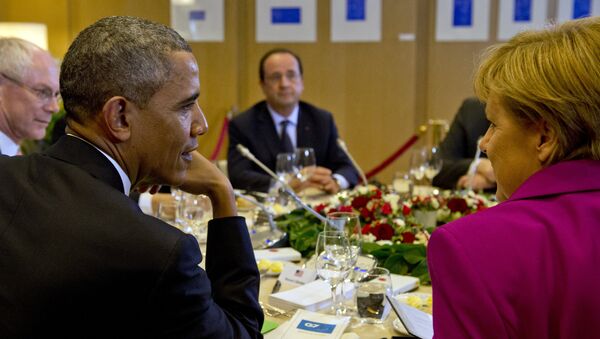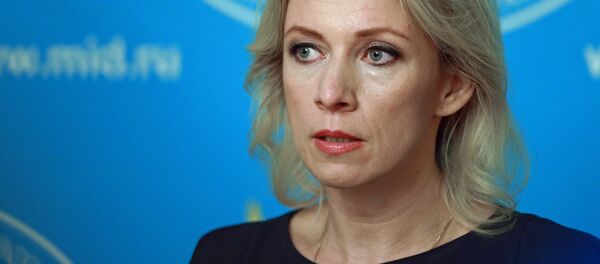Two research fellows from the Hudson Institute, a conservative DC-based think tank, have laid out their vision of what Russia is up to in the skies above Syria.
In their article, which was published on the institute’s website and in Foreign Policy, the authors insist that Europe certainly can’t manage on its own and should be shepherded, if not by the US, then by Russia.
“Should Russia’s narrative on Syria carry the day, the consequences will test the reliability of US leadership,” they say.
The authors reiterate that the true purpose of the US-led coalition in Syria is to oust its legitimate president rather than to merely fight a terrorist group, and lament that the fight against the Islamic State has now taken precedence.
“European governments that have spent political capital supporting Washington’s position from the start of the Syrian crisis, now pressured to prioritize the fight against the Islamic State instead of ousting Assad, are left to ponder if Putin has been right all along.”
“Is he a more reliable ally than Washington? In any case, Russia’s move is less of an enigma to European policymakers than it is to the White House. “If I [were] Russia and Iran, I would act exactly the same way,” they quote a senior European diplomat as telling Foreign Policy.
“Even more worrisome for the future of European liberal polities, Putin’s moves in Syria will only embolden the voices that turn to Moscow as an alternative to Washington and Brussels.”
“Should the Ukrainian situation remain calm, European leaders will have a hard time explaining why they must maintain sanctions on the very country they’re counting on to solve the Syrian problem.”
“Sanctions don’t come cheap for European economies. The European Commission projects that Ukraine-related sanctions cost European economies 0.3 GDP points in 2014 and 2015 — a non-negligible cut, when eurozone GDP is only expected to grow by 1.5 percent in 2015. In short, the sanctions regime is expensive, divisive, and European leaders are beginning to make noise about their desire to rebuild trade relations with Russia. Their business communities demand it, and Europe’s attention span for the conflict in Ukraine is waning.”
With these 'grim' prognostications, the authors conclude that “after his recent move, Vladimir Putin seems like a more coherent, reliable player than Washington,” warning that the “cost of American restraint may damage European and transatlantic unity for many years to come.”




